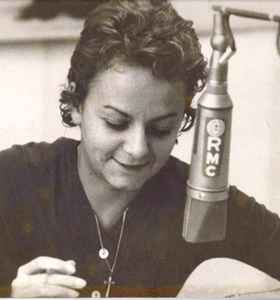Every two weeks we summarize some of the most interesting posts (based on number of comments) that appeared in the first half of September on the italian Facebook group Talkmedia, the most important private group composed of professionals and emthusit of radio and the broadcasting sector in general.
The topics and comments were selected and elaborated by PeperoniAI and Claude from Anthropic, with fact checking (and some final thoughts) by M.H.B. promoted for the occasion to “AI caretaker“.

Radio Today by Gianfranco Campobasso
In a September 1st post. Gianfranco Campobasso harshly criticized modern radio, judging it negatively for its musical programming, style of broadcasting and lack of imagination compared to the past. This would be evident to everyone by listening today to some old recordings from stations like Studio 105, RMi and Deejay as well as early RTL 102.5
A first commenter replied, defending the author’s right to express himself, but disagreeing with his drastic judgments and saying he actually favoured today’s radio.
A second reader asked the author to explain his point of view better. The author sarcastically replied, inviting him to hold on tight to his modern “little radio”.
Note from the caretaker: Our AI tends to be politically correct and interprets this exchange in a way that in our personal and human opinion is surreal (or perhaps encrypted). Those interested can find it in the original post.
Subsequently, a third commenter urged people not to compare today’s radio with that of the past, which belongs to another era, and to appreciate modern radio for what it offers. The author of the post retorted, claiming he was unable to appreciate contemporary radio, which he felt was actually causing him health problems (gastritis).
Finally, a fourth reader advised the author to not follow groups that talk about modern radio, since he doesn’t seem to appreciate it. With a joking, stinging tone, the author replied that he had no intention of depriving himself of the pleasure of criticizing contemporary radio operators.

Vintage Radio Equipment
By Enrico Bonisolo
In a late August post, Enrico Bonisolo shared a photo of an old six-channel Amtron UK718 mixer, recalling its use in early free radio stations in the 70s.
A first commenter recalled having purchased a similar one in 1978 for a local station, pairing it with other gear from that period. The two nostalgically recalled early experimentation with pirate radio at the time.
A second reader explained some technical characteristics of that model, underlining the limitations of the equipment used by early independent stations. He recounted having used it for a few months before moving on to more advanced technologies.
A third commenter mentioned a historic electronics magazine, asking if anyone had built a particular accessory (a stereo encoder) published in it. A fourth reader clarified that the designer of that accessory was a ham radio enthusiast, not a CB operator, as previously erroneously stated.
There followed other comments where users shared personal memories from that pioneering era of radio, between vintage transmitters, homemade antennas and experiences with brands and magazines of the time.
Capital News
One of the most discussed topics is the “eternally renovating” Capital radio. Both Nicola Franceschini’s September 3rd post and Simone Mercurio’s post sparked countless comments.
A first commenter defined the station as “ruined”, eliciting a reply from another asking in what sense it was ruined, and wishing the station long life.
Others intervened to express criticism, such as the excessive duration of some programs or the presence of unappreciated hosts. Some have switched to listening to a competing station.
But there were also voices of appreciation: some called it the best radio in Italy for music quality and professional broadcasting. One comment praised the presence of music programs with free playlists full of gems.
One user wondered why critics think radio has to necessarily chase audience, without enhancing possible alternative offerings, thus risking becoming mainstream pop.
A comment absolutely shared by the AI caretaker, who decided to add something of his own:

Finally another listener suggested that some hosts should expand the musical genres chosen and avoid excessive – and dangerous – niches.
 Myriam
Myriam
Finally, much support for Alessandro Cerreoni’s post about Myriam Fecchi, defined as “a super woman who was a DJ, worked at major radio stations, hosted successful TV shows and helped launch prominent artists like Mike Francis and Double Dee. She was the first to bring dance music to television with “Mio Capitano”.
A first commenter recounted having listened to her as a child in the 80s and having felt a strong emotion upon finding her on the radio thirty years later.
Others recalled when the host had a cassette music program in the 80s, sharing anecdotes from that pioneering era of radio. One user proposed digitizing and sharing online an old episode with an interview, to let fans re-listen to that vintage period.
Other historical radio hosts she had worked with were remembered with nostalgia from the beginnings of her career in the 70s, when she took her first steps with great vocal talent despite her young age.
Numerous comments praised her professionalism and unmistakable voice, emblematic of a high quality radio that today tends to be missed. Some also hoped for her return to certain radio contexts to enrich programming with her experience and class.

Someone praising her soft r was answered in the first person by a kind of legend of Monegasque-Italian radio, Barbara Marchand.
Her words “Soft r? There is only one with the real soft r!!!”
Final Thoughts from the AI
– The comparison between modern and vintage radio “excites enthusiasts”, but also generates heated controversy between those nostalgic for the past and supporters of the present. Perhaps a little more mutual openness would benefit the debate.
– Radio technology has taken giant steps in recent decades, even if the pioneers of the free radio era retain an affectionate memory of the first homemade equipment.
– Programs and hosts like Myriam Fecchi remain a point of reference for entire generations of listeners, emblematic of a quality radio that today tends to be idealized.
– Generalist stations often have to balance ratings and alternative offerings, risking dissatisfying purists but aiming to broaden their audience.
– In short, radio remains a medium that arouses passions and emotions, between romantic memories of the past and a critical eye on the present. Perhaps greater mutual openness and understanding between “factions” would benefit the debate.
Final Thoughts from the Caretaker
One thing stands out. Almost everywhere, in nearly every post, someone mentions old radio format and styles from last century, speaking of it as something preferable and now irretrievably lost.
It is very rare to read someone shifting the conversation to the future, imagining scenarios or proposing innovations. Paradoxically, one of the few members of Talkmedia who does this (even if not in these specific posts) actually comes from the state broadcaster, RAI, which has a much longer history compared to private radio. An ironic situation, considering how cutting edge the private stations seemed compared to the state channels back in the 70s (Peperoni AI, Claude by Anthropic and the caretaker for FM-World)
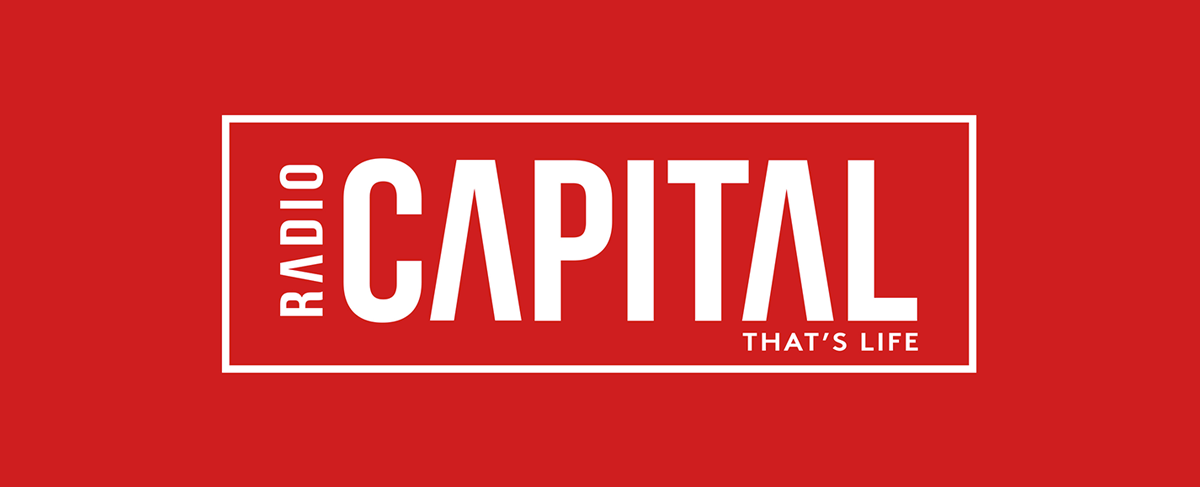

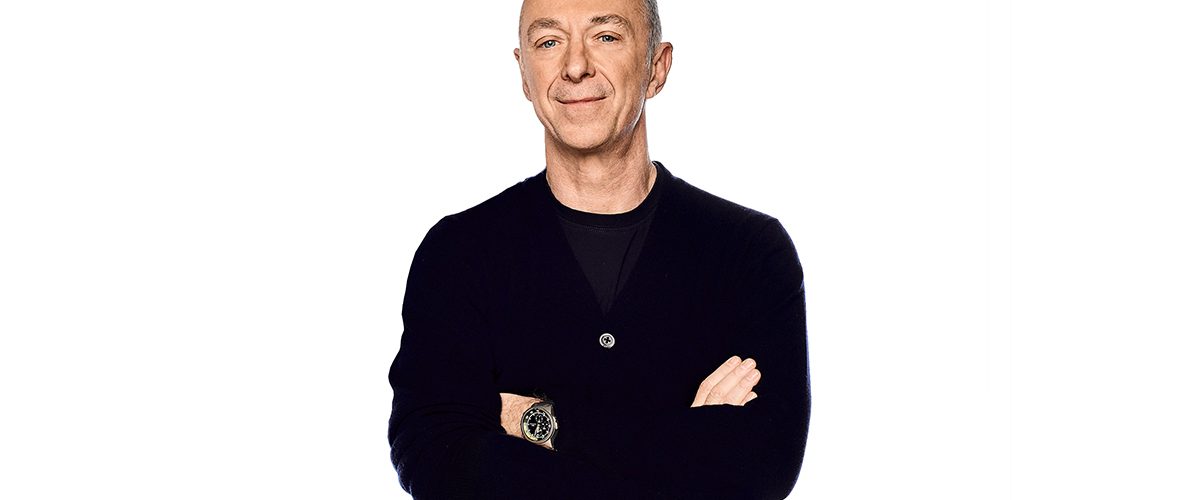

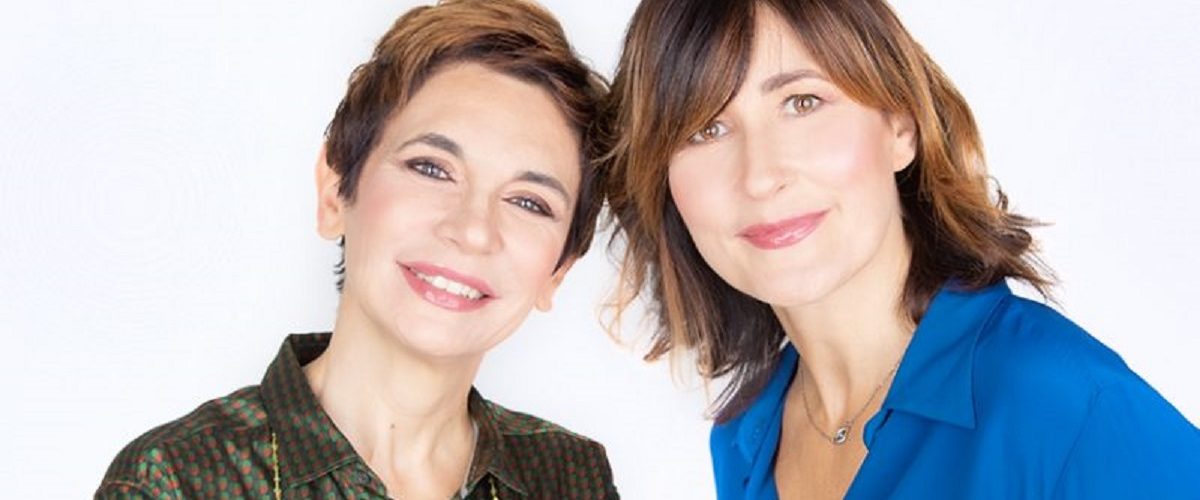
 Da sabato 23 settembre è tornata in onda Doris Zaccone, nuovamente in coppia con Silvia Mobili nella conduzione di “The Breakfast Club” del weekend dalle 7.00 alle 10.00.
Da sabato 23 settembre è tornata in onda Doris Zaccone, nuovamente in coppia con Silvia Mobili nella conduzione di “The Breakfast Club” del weekend dalle 7.00 alle 10.00.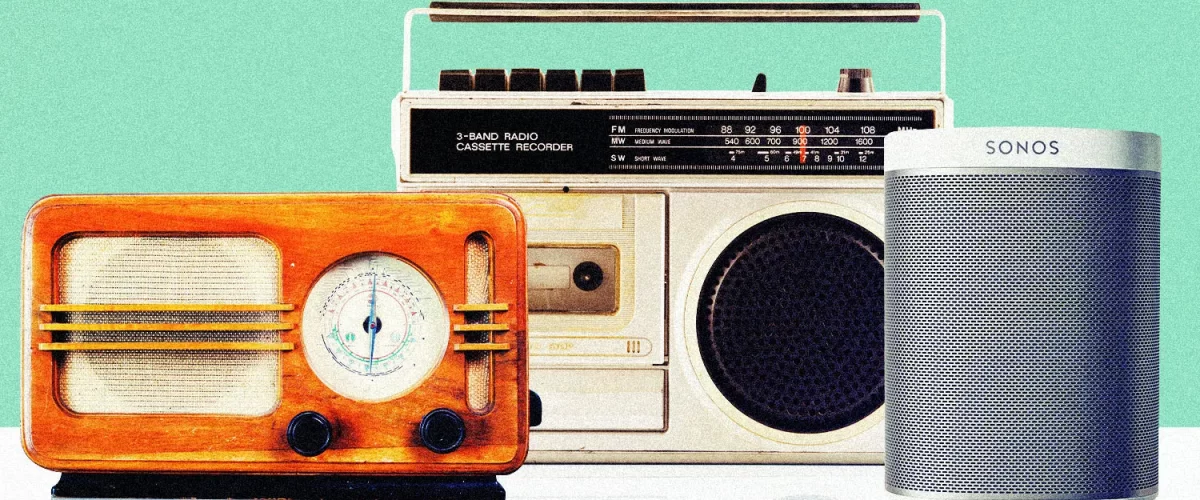

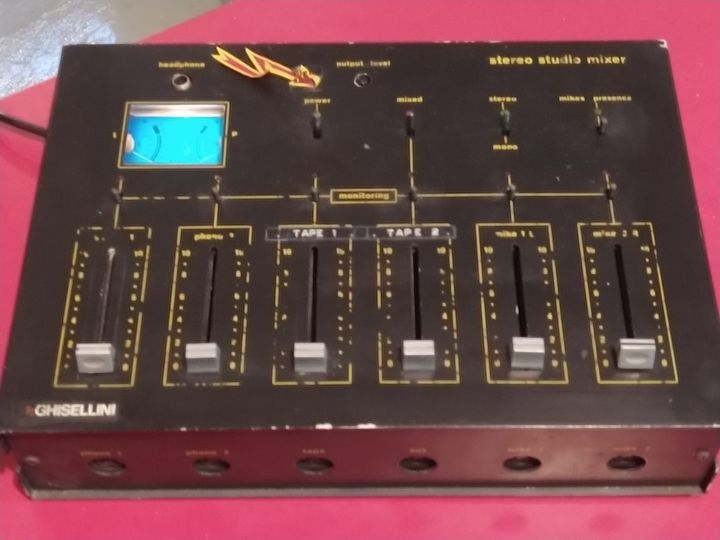
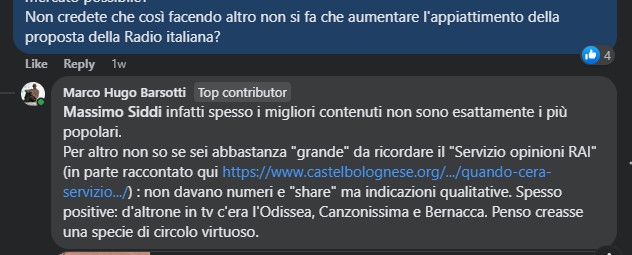
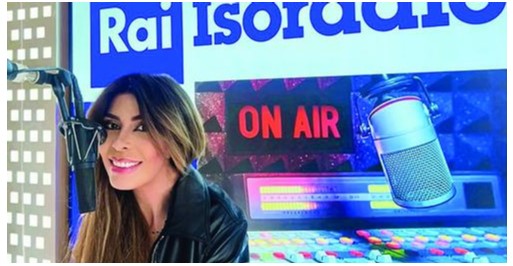 Myriam
Myriam